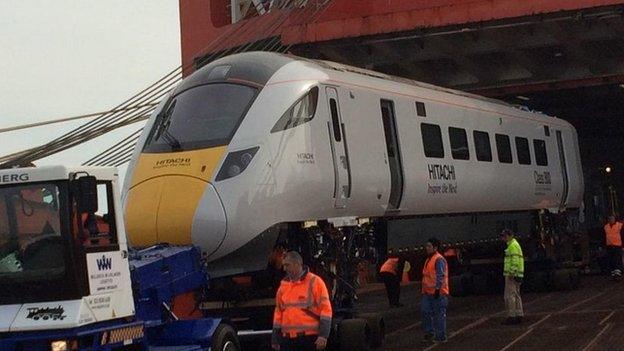First Great Western passengers face strike turmoil
- Published
First Great Western workers go on strike
A 48-hour strike on First Great Western (FGW) trains has left tens of thousands of commuters facing severe disruption.
High-speed services between London, the West of England and Wales have been halved by the industrial action, which started at 18:30 BST on Wednesday.
FGW said more than 60% of services were "operating as normal" but the RMT said the figures were "pure fiction".
The dispute is over concerns guards and buffet cars will be disposed of on new Hitachi Inter City Express trains.
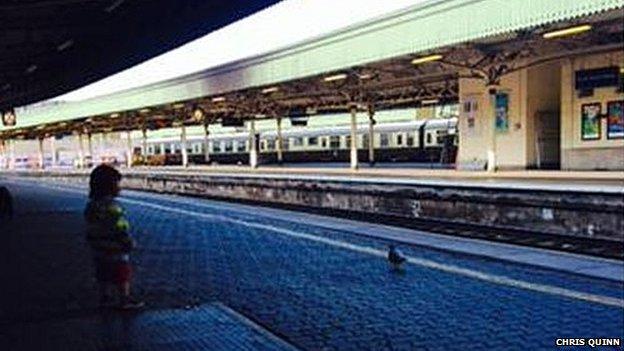
Bristol Temple Meads station was nearly deserted on Thursday morning as the strike took hold
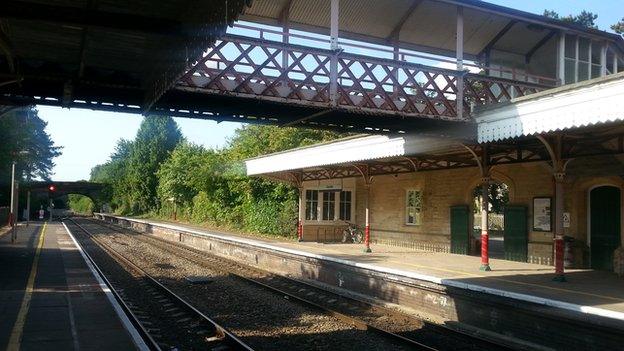
The platforms at Kemble station in Gloucestershire were also empty on Thursday morning
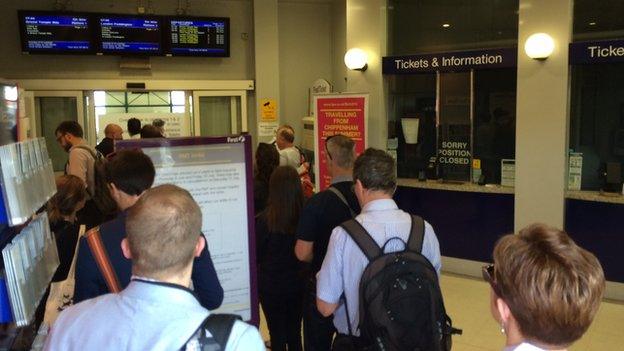
Chippenham station saw commuters awaiting information on the drastically reduced service between Cardiff and London
The RMT said about 2,000 members of staff were on strike across the FGW network.
General secretary Mick Cash said: "FGW are running a skeleton service in some areas which is dangerously overcrowded and being operated by inadequately trained managers, raising serious safety issues which RMT will be taking up formally."
However, a spokesman for the train operator said it was "too early to say" how many employees had decided to strike but safety was its "top priority" and it would "not operate a service without the correct number of safety competent people on board".
FGW is operating a revised timetable, external and said it expects to add additional train services throughout the day.
But a spokesman said, it was unable to offer replacement bus services as there were "just not enough buses available to offer a viable service".

Services between London, the West and South Wales have been reduced by more than half and some suburban rail services have been cancelled.
The industrial action is likely to affect fans returning from the first Ashes Test match in Cardiff.
FGW said it will be operating limited services returning from Cardiff to Bristol Parkway and London Paddington, following the cricket but there will be no direct services to Bristol Temple Meads.
It has advised passengers to make alternative travel arrangements where possible.
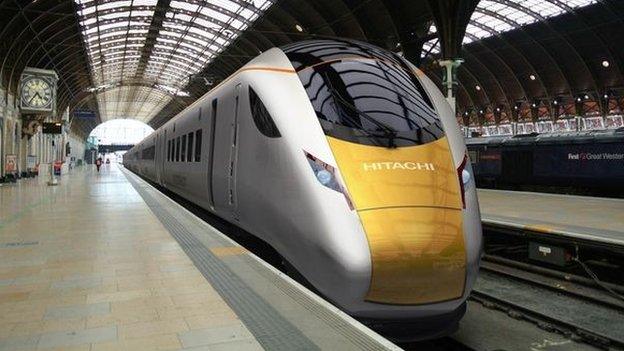
First Great Western's new high-speed trains will replace a fleet of trains from the 1970s
The strike coincides with a separate, 24-hour stoppage on London Underground, which has closed the entire Tube network.

Strike timetable changes
Bristol Temple Meads to London services reduced to one an hour, and north to Gloucester every two hours
London to Cardiff services reduced to one an hour with services extending to Swansea only during peak travel times
Penzance to Plymouth services to run every two hours but many local services have been cancelled
Most services from the Thames Valley into London Paddington are expected to run as normal. Passengers travelling west will face disruption

RMT general secretary, Mick Cash said: "The company still feel that the configuration of the new super express trains is out of their control and that it would be in their best interests to have 'driver-only' operations and to remove the buffet cars.
"That position is totally unacceptable and the union is clear that the design of the new fleet of trains is a matter for First Group and that there is still time to modify the rolling stock."
In an open letter to customers, FGW's Mark Hopwood said the new trains would have more staff, not fewer.
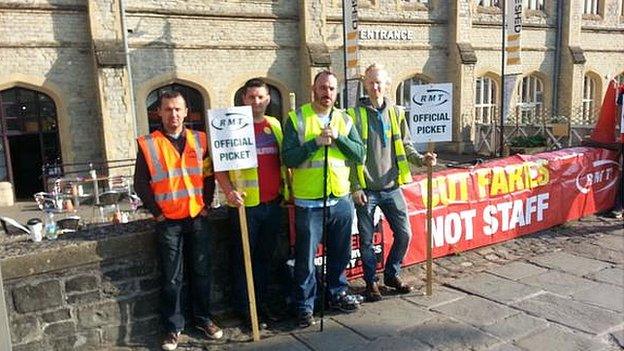
RMT Union members are in dispute with First Great Western over the new fleet of Hitachi trains
He said staff's existing pay and conditions would be protected and there would be "no compulsory redundancies for station and customer service staff".
The first Hitachi trains will run on the Great Western main line from 2017 and the East Coast main line from 2018.
The new trains are being introduced under the Intercity Express Programme (IEP), external on routes between London Paddington and Oxford, Bristol and South Wales.
- Published9 July 2015
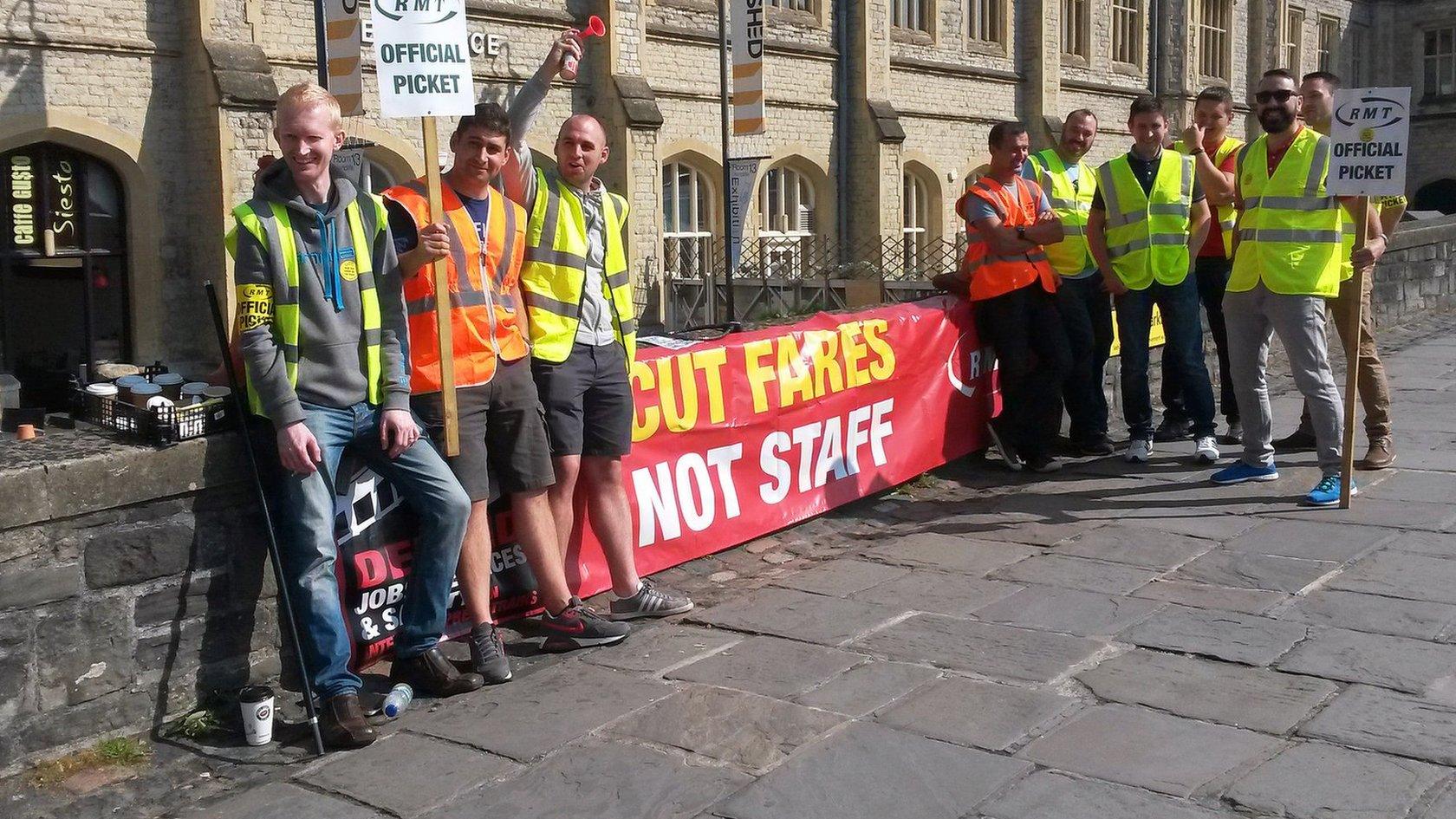
- Published9 July 2015
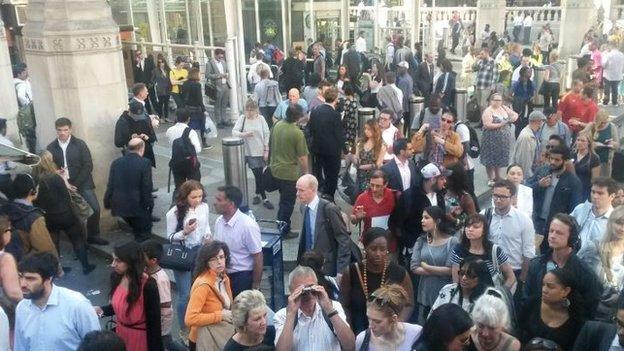
- Published6 July 2015
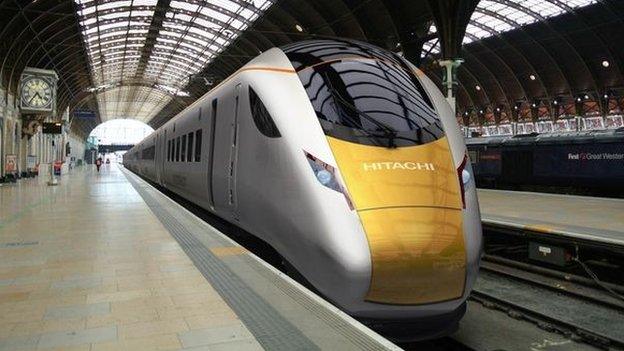
- Published30 June 2015
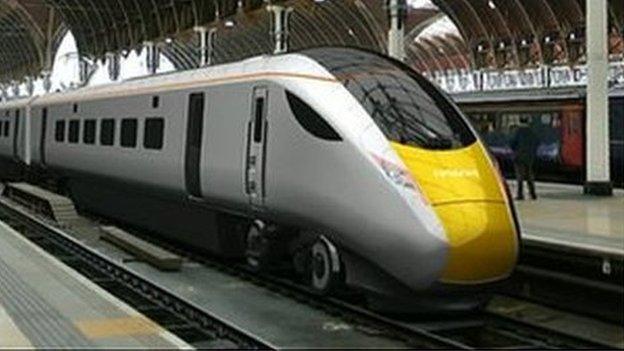
- Published8 April 2015

- Published23 March 2015
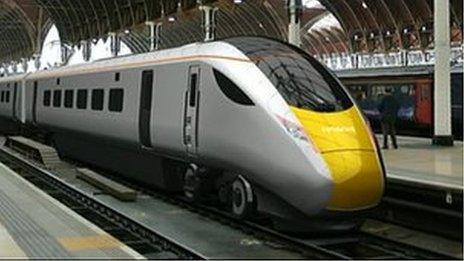
- Published12 March 2015
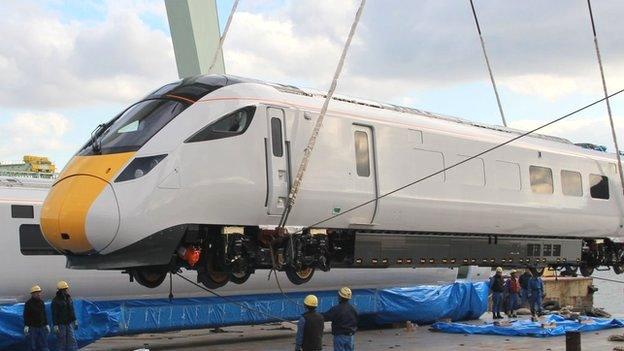
- Published12 March 2015
